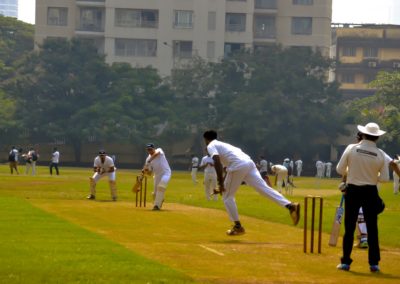
Changing the labels as suggested by the Surgeon General will require congressional action that may never happen. According to Favini, a moderate amount of drinking — one drink per day for women, and two drinks per day for men per the United States Dietary Guidelines for Americans — is generally safe for people in good health and unlikely to have a negative effect on their immune systems. Acetaldehyde is the toxic byproduct that contributes to tissue damage, alcohol dependence, and addiction (Zakhari 2006).
Effects on White Blood Cells

These articles detail how alcohol affects the immune system and how researchers are harnessing this knowledge to help prevent and treat alcohol-related harm. Chronic alcohol consumption disrupts the delicate balance of the immune system, leading to dysregulation and an increased risk of autoimmune diseases. Alcohol-induced inflammation and oxidative https://ecosoberhouse.com/ stress can trigger the production of self-reactive antibodies and the attack of healthy tissues.
How Alcohol Affects Your Immune System and How to Bounce Back
Alcohol exposure, and particularly chronic heavy drinking, affects all components of the adaptive immune system. Studies both in humans and in animal models determined that chronic alcohol abuse reduces the number of peripheral T cells, disrupts the balance between different T-cell types, influences T-cell activation, impairs T-cell functioning, and promotes T-cell apoptosis. Chronic alcohol exposure also seems to cause loss of peripheral B cells, while simultaneously inducing increased production of immunoglobulins.

Innate lymphocytes: The effects of alcohol misuse

Many are exploring ways to cut back, including the Dry January Challenge or alcohol-free drinks. The answer to this important question has varied over time, but current US guidelines recommend that men who drink should limit intake to two drinks/day or less and women who drink should have no more than one drink/day. The definitions for a drink in the US are the common serving sizes for beer (12 ounces), wine (5 ounces), or distilled spirits/hard liquor (1.5 ounces).
Mucosal associated invariant T cells
- Much progress has been made in elucidating the relationship between alcohol consumption and immune function and how this interaction affects human health.
- By illuminating the key events and mechanisms of alcohol-induced immune activation or suppression, research is yielding deeper insights into alcohol’s highly variable and sometimes paradoxical influences on immune function.
- “What I liked most about alcohol was the emotional signal to relax,” she says.
Multiple researchers have reported that alcohol use can deplete critical cell subpopulations, by impairing cell maturation and chemotaxis. For example, a depletion of NK cells (cytotoxic, IFN-γ secreting) would be expected to impair immune responses reliant on cytotoxicity; however, NK depletion would also be expected to impact tissue IFN-γ levels and thereby attenuate responses by the adaptive and innate arms of the immune system. Examples of cell depletion and signaling disruption have been reported for many types of innate immune cells. However, it is also worth recognizing that alcohol and alcohol-related metabolites can interact with a variety of lymphocytes in nuanced ways through mechanisms other than cellular depletion. Some cell types, such as MAIT cells, may be mediated through indirect pathways that involve the microbiota.
It’s all too common that problem drinking disrupts bonds with a spouse, family members, friends, coworkers, or employers. Several studies have demonstrated the dose-dependent effect that alcohol has on preventing both monocytes and macrophages from binding to the bacterial cell wall component lipopolysaccharide (LPS). When you drink too much alcohol, it can throw off the balance of good and bad bacteria in your gut. Not drinking has “had positive impacts in what feels like all aspects of my life,” she says.
Alcohol use can cause respiratory complications such as pneumonia, empyema, respiratory syncytial virus, tuberculosis, lung abscess, and adult respiratory distress syndrome (ARDS). When alcohol damages the gastrointestinal tract’s barrier, bacteria and toxins can enter the bloodstream easily, potentially leading to septicemia and sepsis. Sign up to get tips for living a healthy lifestyle, with ways to fight inflammation and improve cognitive health, plus the latest advances in preventative medicine, diet and exercise, pain relief, blood pressure and cholesterol management, and more. Alcohol has long been considered a “social lubricant” because drinking may encourage social interaction. Having a drink while getting together with family or friends is often part of many special occasions. Monocytes express Toll-like receptor (TLR) 4, the PRR that is often responsible for recognizing LPS on the surface of Gram-negative bacteria.
According to the Cleveland Clinic, once you take a sip of alcohol, your body prioritizes breaking down alcohol over several other bodily functions. The body doesn’t have a way to store alcohol like it does with carbohydrates and fats, so it has to immediately send it to the liver, where it’s metabolized. Similarly, alcohol can trigger inflammation in the gut and destroy the microorganisms that live in the intestine and maintain immune system health. When someone is exposed to a virus, the body mounts an immune response to attack and kill the foreign pathogen. The Recovery Village at Baptist Health helps people recover from alcohol addiction with evidence-based treatment and compassionate care. Reach out to our team to learn more about addiction treatment options that can help you on the path to recovery.
Respiratory Conditions
If you’re enjoying this article, consider supporting our award-winning journalism by subscribing. By purchasing a subscription you are helping to ensure the future of impactful stories about the discoveries and ideas shaping our world today. You can get a respiratory syncytial virus (RSV) infection from someone who has it when they cough or sneeze. You can also contract the virus if you touch a surface that has the virus on it. Products sold on this website are not intended to diagnose, treat, cure, or prevent any disease. Information provided by this website or this company is not a substitute for direct, does alcohol suppress immune system individual medical treatment or advice.
- It affects natural killer cells, impairs epithelial cells, and compromises the body’s ability to mount effective immune responses.
- Read more to find out why heavy drinking and immune health just aren’t compatible.
- Upon LPS binding, monocytes become activated, mature into macrophages and migrate into tissues where they respond to infection by secreting various cytokines, recruiting additional leukocytes via production of chemokines and presenting pathogen-derived peptides to T cells to activate them.
- In the lungs, for example, alcohol damages the immune cells and fine hairs that have the important job of clearing pathogens out of our airway.
Short-term effects of alcohol on the immune system
Many experts respect the complexity of the science, but warn against viewing drinking alcohol as a categorically healthy habit. Anton emphasizes that exercise doesn’t necessarily have a direct effect on how alcohol rehab alcohol is metabolized, so it shouldn’t be an excuse to start drinking. “When people are thinking about drinking, and if they choose to do so, it should be part of a healthy lifestyle,” Rimm says. Like other potential health hazards—such as spending time in the sun or eating not-so-nutritious foods—moderate or light drinking can fit into an otherwise healthy lifestyle, Wakeman says. After ethanol becomes acetaldehyde, it continues breaking down into non-toxic byproducts. But some people’s enzymes work more slowly than others, which leaves them exposed to acetaldehyde and its toxic effects longer, Wakeman says.















